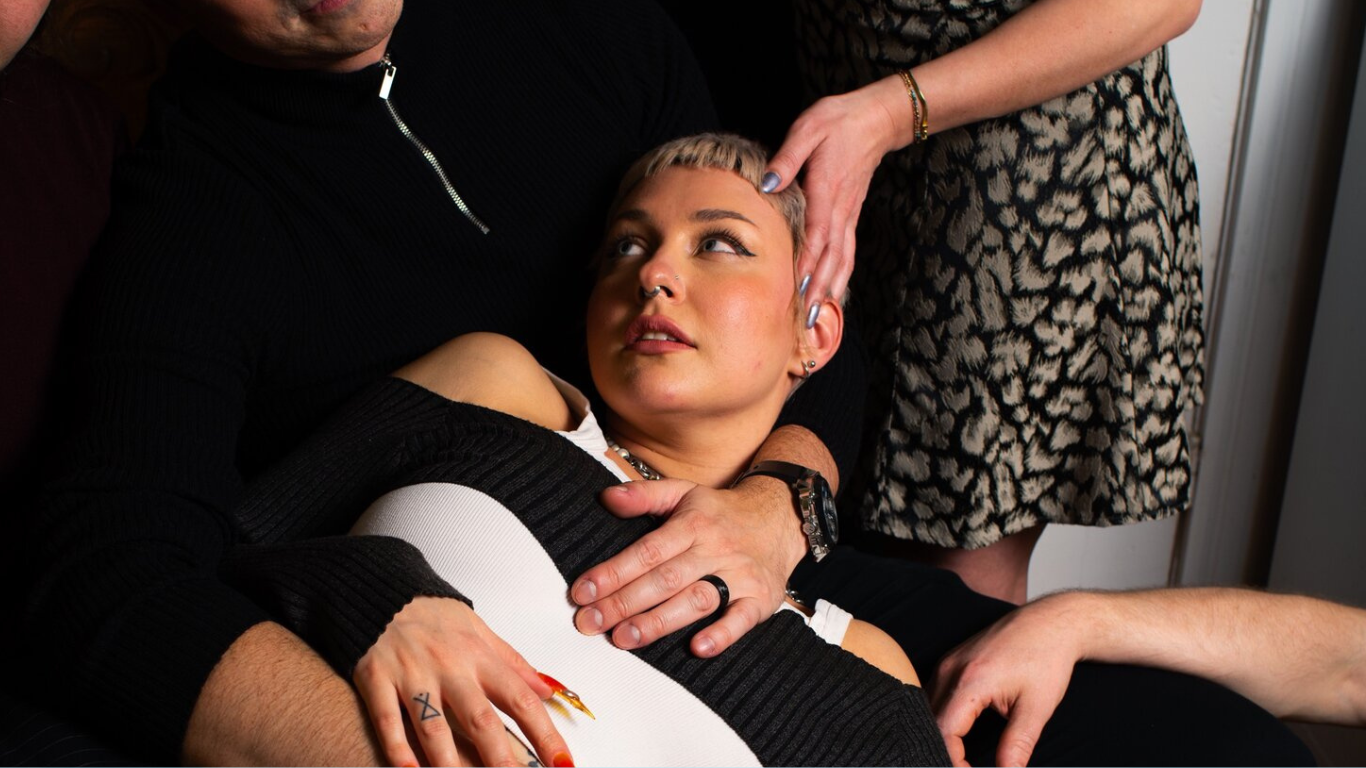Introduction
In recent years, polyamory has gained increasing recognition and acceptance as a legitimate form of relationship structure. One particular aspect of polyamory that has garnered attention is the concept of a “polycule.” This comprehensive guide will delve into the intricacies of polycule polyamory, with a specific focus on the vibrant community in Boston. By exploring the benefits, challenges, and resources available, this article aims to provide a thorough understanding of polycule polyamory for those interested in or currently navigating this lifestyle.
What is Polycule Polyamory?
A. Definition
A polycule is a network of polyamorous relationships that are interconnected. Unlike traditional monogamous relationships, a polycule can include multiple partners, with varying degrees of romantic and emotional connections. The structure of a polycule can be as simple as a triad (three people) or as complex as a large network of interconnected individuals.
B. Origins and Evolution
Polyamory, derived from the Greek word “poly” meaning many and the Latin word “amor” meaning love, has roots in various cultures and historical contexts. The modern polyamory movement began in the late 20th century, advocating for ethical non-monogamy and open relationships. The concept of a polycule evolved as polyamorous communities grew and individuals sought ways to define their unique relationship structures.
Polyamory in Boston
A. Historical Context
Boston has a rich history of social movements and progressive thinking, making it a fertile ground for alternative relationship structures like polyamory. From the transcendentalist movement to contemporary LGBTQ+ advocacy, Boston has long been a hub for exploring and accepting diverse lifestyles.
B. Current Landscape
Today, Boston boasts a thriving polyamorous community, supported by local meetups, online forums, and advocacy groups. The city’s diverse population and open-minded culture provide a welcoming environment for those practicing polyamory.
Types of Polycules
A. Triads and Quads
A triad, also known as a throuple, consists of three people who are romantically involved with each other. A quad expands this concept to four people. These formations can involve all members being equally connected or some having closer bonds than others.
B. V-Formations and N-Formations
In a V-formation, one person is at the center with separate romantic relationships with two other individuals who are not romantically involved with each other. An N-formation includes an additional layer of connections, forming a more intricate network.
C. Complex Networks
Larger polycules can form complex networks with multiple connections and varying degrees of intimacy. These networks often require clear communication and strong boundaries to maintain harmony.
Benefits of Polycule Polyamory
A. Emotional Support
One of the significant benefits of polycule polyamory is the extended emotional support network. With multiple partners, individuals can share their burdens and joys with more people, leading to a stronger support system.
B. Diverse Perspectives
Having relationships with multiple partners brings diverse perspectives and experiences into one’s life. This diversity can enhance personal growth and provide broader insights into various aspects of life.
C. Flexibility in Relationships
Polycule polyamory offers flexibility that traditional monogamous relationships may lack. Individuals can explore different relationship dynamics and find what works best for them without the constraints of monogamy.
Challenges in Polycule Polyamory
A. Jealousy and Insecurity
Jealousy and insecurity are common challenges in polycule polyamory. These feelings can arise from fear of losing a partner’s attention or comparing oneself to others in the polycule. Addressing these emotions requires open communication and mutual understanding.
B. Time Management
Balancing time among multiple partners can be demanding. Effective time management and prioritization are essential to ensure that all relationships receive adequate attention and care.
C. Social Stigma
Despite growing acceptance, polyamory still faces social stigma. People in polyamorous relationships may encounter judgment and misunderstanding from those unfamiliar with the lifestyle. Building a supportive community can help mitigate these challenges.
Navigating Relationships in a Polycule
A. Communication Strategies
Open and honest communication is the cornerstone of successful polycule polyamory. Regular check-ins, transparent discussions about feelings, and active listening are crucial for maintaining healthy relationships.
B. Setting Boundaries
Clear boundaries help manage expectations and prevent misunderstandings. Discussing and agreeing on boundaries ensures that everyone in the polycule feels respected and valued.
C. Conflict Resolution
Conflicts are inevitable in any relationship, and polycules are no exception. Developing effective conflict resolution strategies, such as mediation and compromise, can help resolve disputes and maintain harmony.
Community and Support in Boston
A. Local Meetups
Boston hosts numerous local meetups for the polyamorous community. These gatherings provide opportunities to connect with like-minded individuals, share experiences, and build friendships.
B. Online Communities
Online communities, such as forums and social media groups, offer a platform for polyamorous individuals in Boston to discuss challenges, seek advice, and share resources.
C. Support Groups
Support groups provide a safe space for polyamorous individuals to explore their feelings, seek guidance, and receive emotional support. These groups often include facilitated discussions and workshops.
Legal and Social Considerations
A. Legal Status of Polyamory
Polyamory is not legally recognized in most jurisdictions, including Boston. This lack of recognition can present challenges in areas such as healthcare, inheritance, and parental rights. Advocacy for legal recognition is ongoing.
B. Social Acceptance
While Boston is generally progressive, social acceptance of polyamory varies. Educating others about polyamory and fostering inclusive environments can help increase acceptance.
C. Healthcare and Counseling
Access to polyamory-friendly healthcare and counseling is essential. Professionals who understand the unique dynamics of Polycule Polyamory in Boston can provide better support and guidance.
Resources for Polycules in Boston
A. Books and Literature
Books such as “The Ethical Slut” by Dossie Easton and Janet Hardy and “More Than Two” by Franklin Veaux and Eve Rickert offer valuable insights into polyamory and polycules.
B. Workshops and Seminars
Workshops and seminars provide opportunities to learn about polyamory, improve relationship skills, and connect with the community.
C. Professional Counseling
Professional counselors who specialize in polyamory can offer personalized guidance and support. Finding a poly-friendly counselor can enhance relationship satisfaction and personal well-being.
Success Stories of Polycule Polyamory
A. Personal Testimonials
Personal testimonials highlight the joys and challenges of polycule polyamory. These stories offer inspiration and practical advice for those navigating similar relationships.
B. Community Impact
Successful polycules often contribute positively to their communities. By fostering inclusivity and support, they help create a more accepting society.
C. Media Representations
Media representations of polyamory are increasing, offering visibility and normalizing the lifestyle. Positive portrayals can help reduce stigma and promote understanding.
Misconceptions about Polyamory
A. Common Myths
Common myths about polyamory include the idea that it is synonymous with cheating or that it is solely about sex
. These misconceptions can be dispelled through education and open dialogue.
B. Facts and Clarifications
Clarifying the facts about polyamory helps counter misinformation. Emphasizing the importance of consent, communication, and ethical practices is crucial.
Future of Polycule Polyamory in Boston
A. Emerging Trends
Emerging trends in polyamory include increased visibility, greater acceptance, and the development of supportive communities. These trends indicate a positive future for polycule polyamory in Boston.
B. Advocacy and Awareness
Advocacy and awareness efforts are vital for promoting polyamory and securing legal recognition. Engaging in activism and supporting organizations that champion polyamory can drive progress.
C. Predictions for the Next Decade
The next decade may see significant advancements in the acceptance and recognition of Polycule Polyamory in Boston. As more people embrace diverse relationship structures, societal norms are likely to evolve.
Conclusion
Polycule polyamory offers a unique and fulfilling approach to relationships. By understanding the benefits, challenges, and resources available, individuals in Boston and beyond can navigate this lifestyle with confidence and support. Whether you are new to polyamory or an experienced practitioner, the polyamorous community in Boston provides a welcoming and inclusive environment for all.
FAQs
- What is a polycule?
- A polycule is a network of interconnected polyamorous relationships, ranging from simple triads to complex networks.
- How can I find polyamorous communities in Boston?
- Local meetups, online forums, and support groups are great ways to connect with the polyamorous community in Boston.
- What are the legal challenges of polyamory?
- Polyamory is not legally recognized in most places, which can present challenges in areas such as healthcare and parental rights.
- How do I manage jealousy in a polycule?
- Open communication, setting boundaries, and seeking support from the community can help manage jealousy and insecurity.
- What resources are available for polyamorous individuals?
- Books, workshops, professional counseling, and online communities offer valuable resources for those practicing polyamory.




